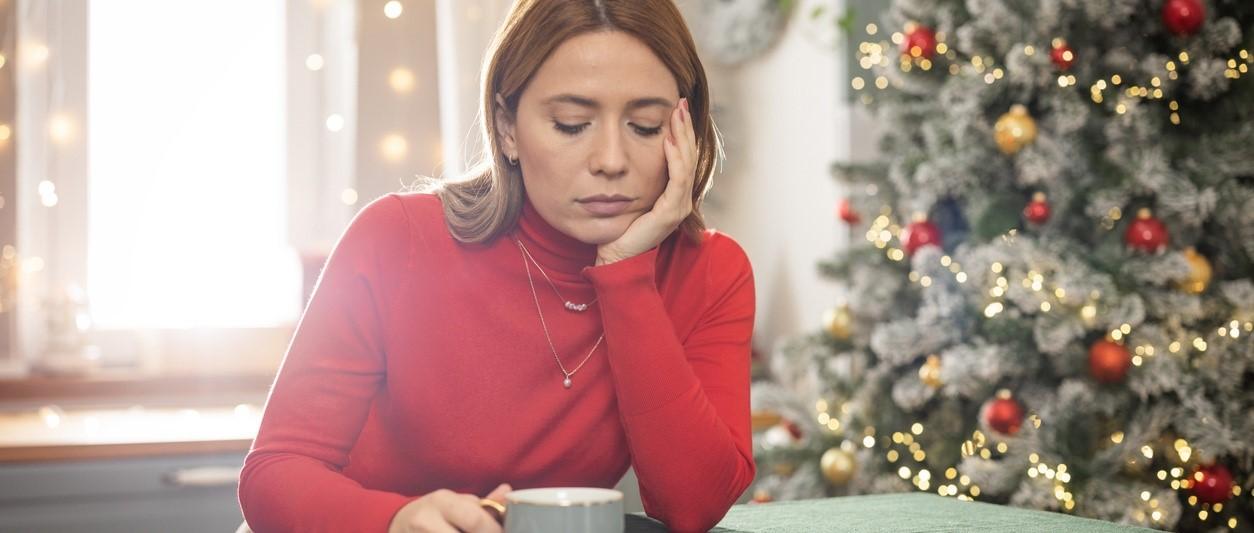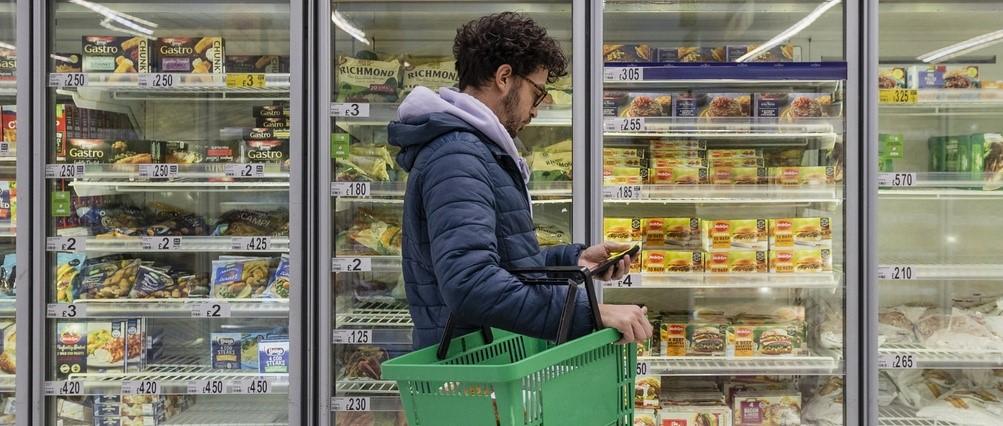
How to manage food guilt over Christmas
Peer reviewed by Dr Sarah Jarvis MBE, FRCGPLast updated by Emily Jane BashforthLast updated 15 Dec 2023
Meets Patient’s editorial guidelines
- DownloadDownload
- Share
- Language
- Discussion
Christmas is a very food-focused holiday. Whether it's mince pies, turkey, roast potatoes, or the Quality Street we crack open while watching a festive film, food is everywhere. However, a heavier focus on food means the guilt afterwards can be more intense. This is especially the case as the 'new year, new me' season approaches and diets are advertised endlessly.
In this article:
Food guilt shouldn't stand in your way of enjoying Christmas with your loved ones. There are ways to overcome it and manage your triggers, as Dr Verity Biggs explains.
Continue reading below
What triggers food guilt at Christmas?
"Unfortunately, the things we see and hear, even from an early age, have a lifelong affect on us. It's ingrained in us to view food and drink as a treat or a reward. We also might punish ourselves with food. Some people will try to 'be good' or diet all year, and then relax this at Christmas, as they feel like they've earned it," says Dr Biggs.
"The supermarkets are stocked full of chocolates, desserts and nibbles. We might go to parties, have food at work or tuck into the mince pies that are on offer all day long. It's understandable why eating more might cause discomfort. Also, we forget that most of this food is available all year round but it is marketing that changes to entice us into buying it."
Some people might be lonely and turn to food for comfort, as Christmas without loved ones around is difficult. This time of year can be especially difficult for anyone struggling with an eating disorder or who already has a turbulent relationship with food.
Making Christmas enjoyable if you are worried about food
Back to contentsDr Biggs' tips:
Plan your meals and eat at normal times.
Drink plenty of water and stay hydrated.
Take time to think about how you are feeling and write it down.
Talk to your friends about how you're feeling - talking about it helps.
Spend time with loved ones.
Don't place all your focus on what you're eating or how your body looks.
Wear clothing that is comfortable for your body.
Prioritise self-care.
Continue reading below
What to do to minimise Christmas food guilt
Back to contentsAll foods in moderation are OK. If you restrict yourself too much, your body is more likely to crave and seek out the sugary, high-calorie foods as a quick-fix option.
Dr Biggs suggests planning your meals in advance. This can help in the lead-up to big occasions by reducing your anxiety. It's important to continue eating regular meals and snacks, even if you are planning on eating more over the Christmas period. You don't need to 'prepare' or feel 'deserving' of extra food.
If you're in control of the Christmas dinner this year, there are also some healthier food swaps you can prepare.
Self-care over Christmas to reduce stress around food
Back to contents"Allow yourself to eat the things you want to and enjoy them. Do not to be disappointed in yourself if you end up eating more than planned - that's fine," says Dr Biggs.
Food doesn't hold a moral value, so it is neither good nor bad. Therefore, it should be seen as a necessity - not as a treat or something to control.
Dr Biggs also recommends doing things in the build-up to Christmas to take your mind off food. Try to move more, go for walks, dance around your Christmas tree - anything you fancy. Remind yourself of all the great things your body is capable of and give it permission to eat. It needs food for fuel and energy.
"Practising mindful eating may help with those urges to eat more of your favourite foods. This allows you to actually enjoy what you are eating and take time with it, relishing the flavours. When doing this, it is important that we remove any distractions like phones, TV, or computers," Dr Biggs says.
Continue reading below
What to do about post-Christmas food guilt
Back to contentsIf you've eaten differently over Christmas, the urges to restrict afterwards might be high. However, if you're still experiencing food guilt, Dr Biggs has five key words of advice: Don't go on a diet.
"Don't be too restrictive. It will only make you feel bad. You need to continue to fuel your body, regardless of what you ate over Christmas. Follow a realistic, well-balanced plan, but also don't be afraid to veer off plan and eat intuitively."
She also stresses the importance of addressing why eating makes you feel guilty. Identifying the underlying reasons for your food guilt can help you manage it. Speaking to a health and wellbeing coach could help with this.
"Don't panic and sign up to a January resolution type of plan, as these mostly fail, which just makes you more miserable and even more anxious around food. When anxiety occurs around food, this can lead to disordered eating and, in severe cases, an eating disorder."
An eating disorder is a mental health condition and needs treating with specialist input from psychiatrists and psychologists. Eating disorders can cause physical problems too.
When should you get help?
Back to contentsYou can reach out at any point if you are struggling, and shouldn't just wait for things to get worse. Dr Biggs says each group of GP practices should have a health and wellbeing coach attached to it. This would be a good place to go to get help in the first instance. If an eating disorder is suspected, then you will be referred to a specialist.
Patient picks for Healthy eating

Diet and nutrition
What are ultra processed foods and do they cause cancer?
After a long day, many of us reach for cheap, convenient foods to make dinner quicker and easier, like ready-made pasta sauces or straight-to-the-oven meals. But even those that seem healthy - like a jar of tomato sauce - are often classed as ultra-processed foods. And eating too much of these can have a serious impact on our health and may even lead to addiction.
by Amberley Davis

Diet and nutrition
How to boost your energy levels and feel less tired in winter
The cold and darker months can take their toll on the way we feel. Often, the shorter days, dismal weather and changes to the way we eat and sleep mean we feel groggy and tired in winter - making it difficult to get out of bed. But why can our energy levels drop over winter, and what can we do about it?
by Victoria Raw
Continue reading below
Article history
The information on this page is peer reviewed by qualified clinicians.
Next review due: 15 Dec 2026
15 Dec 2023 | Latest version
19 Nov 2021 | Originally published
Authored by:
Emily Jane Bashforth

Ask, share, connect.
Browse discussions, ask questions, and share experiences across hundreds of health topics.

Feeling unwell?
Assess your symptoms online for free
Sign up to the Patient newsletter
Your weekly dose of clear, trustworthy health advice - written to help you feel informed, confident and in control.
By subscribing you accept our Privacy Policy. You can unsubscribe at any time. We never sell your data.